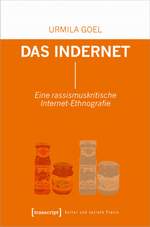Dienstag, 7. Februar 2006
Higher demands
urmila, 20:24h
The 'German' educationalist Paul Mecheril argues that 'strangers', 'newcomers' have to proove their loyality to their place of residence much more than those who have been living there for longer. Already the smallest hint that they still feel some belonging to their former home shows that they are not loyal to 'us' and can thus not be part of 'us'.
Although written some years ago this is a perfect discussion of the current political debate in Germany.
Although written some years ago this is a perfect discussion of the current political debate in Germany.
0 Kommentare in: english ... comment ... link
Second class citizen
urmila, 17:01h
One of the lessons learned from the Nazi period was that the state had no right to withdraw the German citizenship. This is part of the German constitution. But it is no longer legal reality. Today you can loose the German citizenship when you were naturalised on the basis of a 'deceit'.
In the state of Baden-Württemberg applicants for German citizenship have to answer questions about their opinions towards the emancipation of women and homsexuals, about their ideas about democracy, etc (the so called 'Muslim test'). The answers are filed until your death, and can be used any time to show that you deceived the state when you were naturalised. As there cannot be 'objective' criteria to interprete the answers and compare them to your real attitudes, this positions the new citizens in a state of arbitrariness. They can never be sure that they are trusted to be rightful 'Germans'. They are citizens until canceled.
In the state of Baden-Württemberg applicants for German citizenship have to answer questions about their opinions towards the emancipation of women and homsexuals, about their ideas about democracy, etc (the so called 'Muslim test'). The answers are filed until your death, and can be used any time to show that you deceived the state when you were naturalised. As there cannot be 'objective' criteria to interprete the answers and compare them to your real attitudes, this positions the new citizens in a state of arbitrariness. They can never be sure that they are trusted to be rightful 'Germans'. They are citizens until canceled.
0 Kommentare in: english ... comment ... link
Montag, 6. Februar 2006
'Muslims' should go back
urmila, 15:35h
I never understood why the act of naturalisation is such a problem in Germany. If one doubts the 'loyalty' or whatever of those who want to get the German citizenship, then the refusal of it would not help much. The applicants would continue living in Germany. And the problems would be the same, or would they not?
One conservative politician finally has heard my question and has clarified: The best thing would be to send the 'Muslims' back.
One conservative politician finally has heard my question and has clarified: The best thing would be to send the 'Muslims' back.
0 Kommentare in: english ... comment ... link
The power of pictures
urmila, 15:28h
Pictures, especially moving ones, are powerful. 1997 they convinced 'us' that masses mourn for Lady Di. After 9/11 they showed us how 'Muslims' celebrated the attacks. And today they proove how 'Muslims' react irrationally against press freedom.
But we do not know how the pictures were produced, what they illustrate. In the case of Lady Di, a friend who lived close to Kensington Palace, told me that the mourners came in masses only after the pictures had circulated. The celebrating 'Muslims' after 9/11 were not celebrating the attacks. And what do today's pictures show us?
We should learn to trust pictures less, to ask more where they come from, who has made them for what reason. We should contextualise them more. But that is quite difficult. Pictures evoke a lot of emotions. We should thus also fight for more responsibility of the media in their selection of pictures.
But we do not know how the pictures were produced, what they illustrate. In the case of Lady Di, a friend who lived close to Kensington Palace, told me that the mourners came in masses only after the pictures had circulated. The celebrating 'Muslims' after 9/11 were not celebrating the attacks. And what do today's pictures show us?
We should learn to trust pictures less, to ask more where they come from, who has made them for what reason. We should contextualise them more. But that is quite difficult. Pictures evoke a lot of emotions. We should thus also fight for more responsibility of the media in their selection of pictures.
0 Kommentare in: english ... comment ... link
Sonntag, 5. Februar 2006
Awareness of whiteness
urmila, 20:29h
"... white people need to be aware of their whiteness - not in the sense of being overwhelmed by guilt or of feeling powerless because they are trapped by forces of history bigger than themselves, but aware in the sense that they can take responsibility for the present and the future and not get stuck as 'victims' of the past."
argues the South African photographer Michelle Booth in an interview (in: L'Homme, 16/2, 2005, p. 126)
argues the South African photographer Michelle Booth in an interview (in: L'Homme, 16/2, 2005, p. 126)
0 Kommentare in: english ... comment ... link
Samstag, 4. Februar 2006
Bilingualism in Bavaria
urmila, 20:31h
Bavarian schools will in future support bilingualism in schools. The children will from now on be able to learn more about the language they speak at home also in school. School material in three languages has already been prepared. Because language is part of the identity.
Somehow they have, however, forgot to include Turkish, Arabic, Kanak sprak, etc. in the list of languages to be supported in school. So far the materials are available only for Bavarian dialects ...
Somehow they have, however, forgot to include Turkish, Arabic, Kanak sprak, etc. in the list of languages to be supported in school. So far the materials are available only for Bavarian dialects ...
0 Kommentare in: english ... comment ... link
Pitfalls
urmila, 20:26h
It is not that easy to be politically correct, to get rid of racist classifications, to avoid othering.
In today's newspaper I found an article about an 'Austrian', who does not look like one, and thus faces the normal range of everyday racisms: considered to be a 'foreigner', considered to lack certain competences, constantly othered, etc.
Unfortunately the author reproduces the othering. He describes the 'Austrian' to be patient, smiling, industrious and small. What could a 'Cambodian', as the author calls him, be else?
In today's newspaper I found an article about an 'Austrian', who does not look like one, and thus faces the normal range of everyday racisms: considered to be a 'foreigner', considered to lack certain competences, constantly othered, etc.
Unfortunately the author reproduces the othering. He describes the 'Austrian' to be patient, smiling, industrious and small. What could a 'Cambodian', as the author calls him, be else?
0 Kommentare in: english ... comment ... link
Romantic Africa
urmila, 01:56h
A documentary on the Tuaregs.
Afterwards a discussion with the director.
He is criticised for reproducing sterotypes in his pictures.
One member of the audience is horrified by this critique:
"But what should he do? If it is so romantic there, how could he film it differently?"
Yes, and the Africans are also much more content than we are. They are so close to nature. etc.
Afterwards a discussion with the director.
He is criticised for reproducing sterotypes in his pictures.
One member of the audience is horrified by this critique:
"But what should he do? If it is so romantic there, how could he film it differently?"
Yes, and the Africans are also much more content than we are. They are so close to nature. etc.
0 Kommentare in: english ... comment ... link
Freitag, 3. Februar 2006
Arranged and forces marriages
urmila, 20:54h
One of the most popular topics in the German discussion about Islam at the moment are the arranged - or as the 'Germans' preferr to call them forced - marriages.
For sure, I would not want to have an arragend marriage. And many of my friends in India would not either. They dislike this heteronormative concept and in many cases it is really the case of a forced marriage (in the sense that one cannot avoid to marry). But in my 'Indian' family it is still standard, most seem to be more or less ok with it, and do not consider it a matter of force but rather of what one does (here again one could discuss what is force).
But it is not only that the 'German' discourse ignores the difference between arranged and forced. It also suggests that forced marriages are an 'Islamic' concept. Don't they know anything about India? About what Hindus and Christians do? Can't they differentiate between religion and patriarchy? Do they know the concept of heteronormativity?
And why are there 'authentic' (with 'Turkish' migration history) researchers who fuel this islamophobic discourse?
For sure, I would not want to have an arragend marriage. And many of my friends in India would not either. They dislike this heteronormative concept and in many cases it is really the case of a forced marriage (in the sense that one cannot avoid to marry). But in my 'Indian' family it is still standard, most seem to be more or less ok with it, and do not consider it a matter of force but rather of what one does (here again one could discuss what is force).
But it is not only that the 'German' discourse ignores the difference between arranged and forced. It also suggests that forced marriages are an 'Islamic' concept. Don't they know anything about India? About what Hindus and Christians do? Can't they differentiate between religion and patriarchy? Do they know the concept of heteronormativity?
And why are there 'authentic' (with 'Turkish' migration history) researchers who fuel this islamophobic discourse?
0 Kommentare in: english ... comment ... link
Further restrictions
urmila, 20:45h
It suffices to note that German politicians discuss further restrictive regulations for naturalisation.
0 Kommentare in: english ... comment ... link
... nächste Seite
 Foto: © Anke Illing
Foto: © Anke Illing


